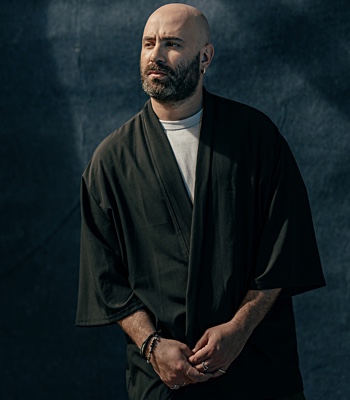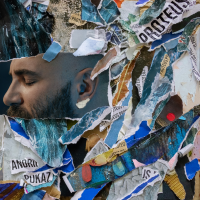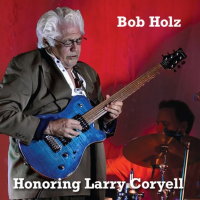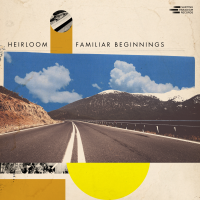tickets:
regular: 14,- €uro
students, disabled persons: 7,- €uro
doors: 7.30 pm CEST
concert starts:
approx. 8.00 pm CEST
Can a pure trombone quartet be entertaining and amusing without losing itself in the abysses of popular folk music? It can. With its third album “Openness”, the Vertigo Trombone Quartet with Nils Wogram, Jan Schreiner, Andreas Tschopp and Bernhard Bamert shows that the trombone can be fun, and four times trombone can be fun to the power of four.
The album title says it all. This album is characterized by an incredible lightness, sophisticated cheerfulness and unconditional openness in all directions. This is not to say that the music is not sophisticated and virtuosic. On the contrary. But Wogram speaks of a charming source of error that one must be able to allow. He also calls it a healthy perfectionism. Now this attitude is very rare in modern jazz, and strictly speaking “Openness” is not a jazz record at all, although all four participants are socialized and associated with jazz. What is described as improvisation in other contexts amounts here to a cheerful blurriness that has a lot to do with joie de vivre. After all, who wants to plan precisely where their path will take them on a warm spring day?...
read more
tickets:
regular: 14,- €uro
students, disabled persons: 7,- €uro
doors: 7.30 pm CEST
concert starts:
approx. 8.00 pm CEST
Can a pure trombone quartet be entertaining and amusing without losing itself in the abysses of popular folk music? It can. With its third album “Openness”, the Vertigo Trombone Quartet with Nils Wogram, Jan Schreiner, Andreas Tschopp and Bernhard Bamert shows that the trombone can be fun, and four times trombone can be fun to the power of four.
The album title says it all. This album is characterized by an incredible lightness, sophisticated cheerfulness and unconditional openness in all directions. This is not to say that the music is not sophisticated and virtuosic. On the contrary. But Wogram speaks of a charming source of error that one must be able to allow. He also calls it a healthy perfectionism. Now this attitude is very rare in modern jazz, and strictly speaking “Openness” is not a jazz record at all, although all four participants are socialized and associated with jazz. What is described as improvisation in other contexts amounts here to a cheerful blurriness that has a lot to do with joie de vivre. After all, who wants to plan precisely where their path will take them on a warm spring day?
Even on the last album of his long-term formation Root 70, Nils Wogram displayed a relaxed attitude that is not typical of either contemporary jazz or the trombone. And as the synchronicity of events often plays out, Tschopp, Bamert and Schreiner have arrived at exactly the same level of serenity. Four friends, who never run out of things to talk about, meet in a pleasant situation and simply start talking about whatever comes to mind. No one is the spokesperson, no one wants to be right or take center stage. And yet everyone gets their say with their attitude, their ideas and their urgency (to stay with the image of the trombone).
At no point is it about what you can do with four trombones. It could just as well be four guitars, accordions or jew’s harps. It’s simply about participating in an honest dialog. The focus is on good stories, which are only told on four trombones because all four protagonists are trombonists. “We’ve gone through a process as a band since our first album in 2014,” confirms Nils Wogram. “In the beginning, we started with the message that we would overcome the difficulties that the instrument brings with it. On the third album, we can look back in a relaxed way and let go. Of course, we all have very different approaches. This time we did it in such a way that each piece is designed by the respective composer. They also have the right of veto if they don’t like something. But despite this diversity, it wasn’t difficult for us to find a common line from the outset.”
Of course, a lot of work and heart and soul goes into an album like this, especially as it combines so many different approaches. But once the songs have passed through the floodgates of laboriousness, you can no longer hear the effort. The effortlessness of this music is infectious from the very first note. The focus clearly shifts from instrumental technique and the playing possibilities on the instrument to pure music. This is playing in the most original sense of the word, with an open outcome. What was the album title again? All four Vertigo trombonists have audibly matured, but at the same time have become much more playful. “At some point, you are taken back to the excitement of those days when you picked up the trombone for the very first time,” says Andreas Tschopp, describing this unconditional playing feeling. “Suddenly, skills from a time when I didn’t have any technical mastery of the instrument come to the fore again, but I really like them again today. This suddenly makes the spectrum much richer again.”
It is precisely this spectrum that manages without any terminology. Yes, four trombones first and foremost suggest JAZZ, perhaps even new music, but with this program the quartet can also ignite storms of enthusiasm at any roots music or jam rock festival. Ballast that the four musicians have been carrying around with them for decades is thrown off unsentimentally. Bernhard Bamert even emphasizes: “For a while I didn’t listen to jazz at all, only classical music, and folk music is actually an important reference point for me.” People cannot be categorized, and the consistently inclusive claim of the album title is reflected in the music in an enchantingly magical way. The recording situation played a decisive role in the mood of the album. “We all went to Bremen together and lived in this studio like an apartment and cooked together,” recalls Andreas Tschopp. “For me, the whole process was like a school trip. It was a very low-threshold way of recording. We didn’t have the feeling that we had to go into the studio super well-rehearsed and deliver perfection, but we were together in the house, ate upstairs and then went downstairs, made music, and someone recorded it. It was a spontaneity like that of original folk music. The whole album is a snapshot.”
Strictly speaking, “Openness” is a live album. The mood conveyed in the music reminds us that “live” is nothing other than a translation for “alive”. On “Openness”, a multitude of melodies, timbres, moods, artistic attitudes, individual preferences and constellations within the group come to the fore. Nothing is defined, everything is open. The four trombonists succeed brilliantly not only in freeing themselves from all expectations, but also in pulverizing every expectation of the listener.
According to Tschopp, Wayne Shorter once said that the opposite of fear is not fearlessness, but openness. On this album, not only does each member with their individual characteristics find an adequate place, but also every listener can settle into the songs, regardless of where their musical socialization is located. In this respect, “Openness” is more than just a piece of music. “Openness” is a real pick-me-up. A utopia at exactly the right time.
Wolf Kampmann
show less





















